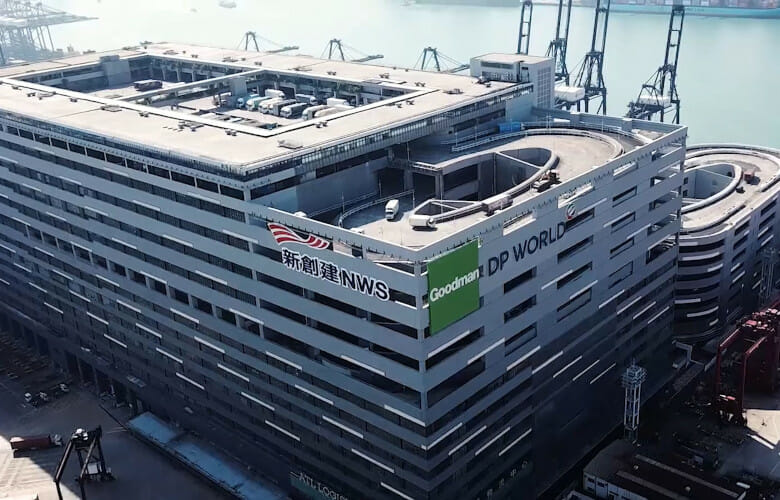
The ATL Logistics Centre in Kwai Chung saw some big leasing deals in Q4
Modern warehouse rents in Hong Kong declined 1.5 percent in the fourth quarter of last year as a slumping logistics market weighed on local third-party logistics (3PL) operators, while sales of stratified industrial space plunged 66 percent during the quarter, according to Savills.
The brokerage predicted further declines in 2023, with overall warehouse rents expected to drop by roughly 5 to 10 percent, but the lifting of most restrictions on the China-Hong Kong border could bring relief to a logistics market buffeted by travel restrictions, regional supply chain turmoil, and rising interest rates, according to a newly released market report.
Hong Kong saw local air freight and container throughputs fall by 15.4 percent and 6.9 percent, respectively, during the first 11 months of 2022, Savills noted. The slump was driven by disruption in Asia’s supply chains as well as the city’s tough COVID-19 quarantine policy for inbound travellers, which was only lifted in late September.
While international third-party logistics providers (3PLs) were less affected by challenges in Hong Kong because they were able to re-route their shipments through other ports and airports in the region, many local 3PLs contracted during the year as they are far more dependent on the city’s logistics operations.
The struggles of Hong Kong’s 3PL sector prompted landlords to be more flexible in rent negotiations, leading to a 1 percent quarterly decline in overall warehouse rents in the Q4 after rising just 0.8 percent in the previous quarter. Modern warehouse rents fell for the second quarter in a row, declining 1.5 percent.
Deals Amid Doldrums
Overall and modern vacancy rates were largely stable at 1.9 percent and 1.3 percent during the quarter, according to Savills. The biggest leasing transaction of the quarter occurred at ATL Logistics Centre, the world’s largest multi-level industrial building, where Kerry Logistics signed a two- to three-year renewal for an estimated 425,009 square feet at phases III, IV and V in October.

Simon Smith, regional head of research & consultancy for Asia Pacific
The facility in the Kwai Chung area of the New Territories also saw major leases from Japan Home Center and Carlsberg Brewery in November. DHL Express and Logilink Warehouse Logistics signed large leases at China Merchants Logistics Centre and Goodman Westlink in October.
In the investment market, savvy investors and end users continued to make selective acquisitions, but overall demand softened amid continued rate hikes, Savills observed. The rising cost of funds and weakening rental returns hammered trades of strata-title industrial space, with only 285 transactions occurring in the fourth quarter, down 66 percent year-over-year.
A joint venture of Blackstone and self-storage operator Storefriendly chalked up the biggest industrial deal of the quarter when it bought the en-bloc Novel Industrial Building in the Cheung Sha Wan area of Kowloon for HK$850 million ($108.2 million) in October.
Singaporean self-storage operator StorHub, which is backed by US private equity firm Warburg Pincus, was also active in the market last quarter, snapping up three floors in Kowloon’s Precious Industrial Centre in separate deals totalling HK$164.27, after buying seven floors in the property during the first quarter.
Australian industrial giant Goodman Group added to the quarter’s deal volume by purchasing a basement floor in the Sunshine Kowloon Bay Cargo Centre for HK$111 million, Savills reported.
Cross-Border Hopes
In an optimistic sign for the logistics sector, mainland China and Hong Kong began to reopen their shared border on Sunday, kicking off what is expected to be a slow recovery of cross-border travel after the nearly three-year closure of land and sea checkpoints separating the city from the mainland.
“Looking ahead, the timing and nature of the border reopening and the speed of supply chain recovery will be key to a logistics demand revival, while a supply overhang could blunt a 2023 recovery,” noted Simon Smith, regional head of research & consultancy for Asia Pacific at Savills in a statement.
The brokerage added that end users are likely to emerge as the key buyers of industrial assets in 2023, while developers are expected to be less active given that redevelopment values of industrial sites, both for residential and commercial use, are poised to continue falling over the year.
Leave a Reply